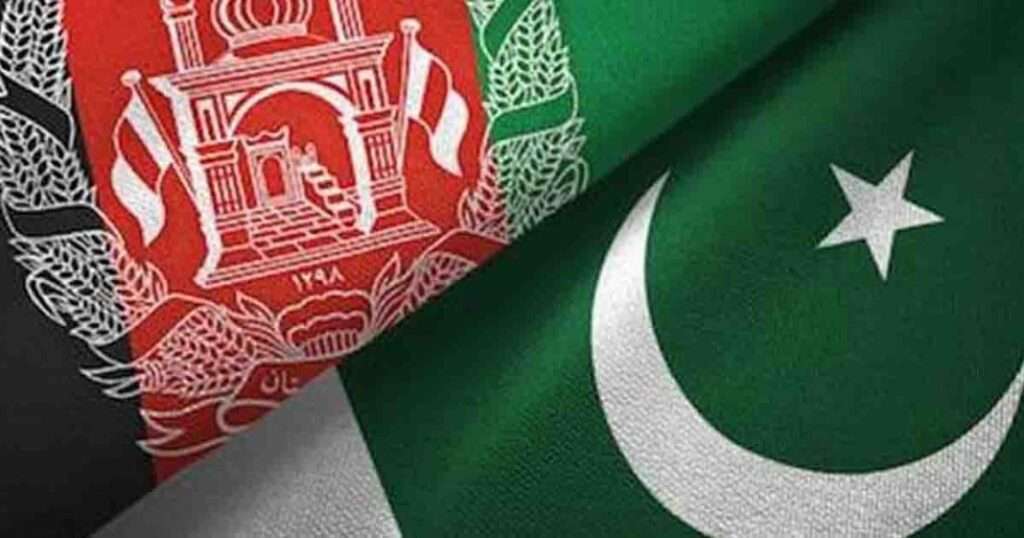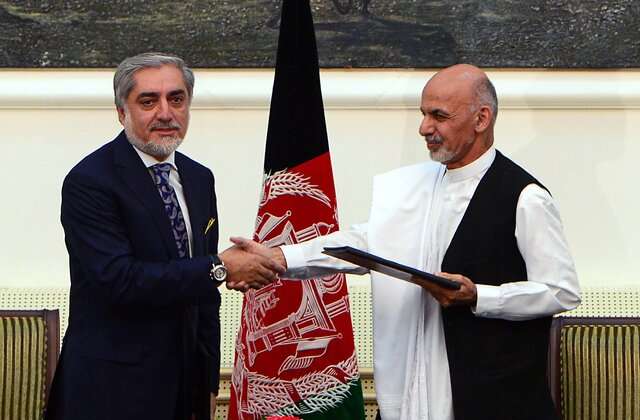Not many people would have heard the word ‘optimism’ in Afghanistan but this is changing now. In a country where transfer of power has rarely been peaceful, the country survived a month long political crisis over a presidential election that was marred by fraud. With a new political order being installed the people are now looking ahead with hope that action promised on the challenges faced will be forthcoming even as foreign troops pull out. President Ashraf Ghani has reiterated his commitment to comprehensive reforms that will be essential to restoring the-faith of the Afghan people in the democratic process and strengthening political stability. Nonetheless, the President has his work cut out as he takes leadership of a country that faces a number of urgent issues. He must deal with challenges such as the contracting economy, an active insurgency, unemployment and a legacy of corruption that has made the Afghan people untrusting of government officials. Despite these challenges, a survey conducted by the Asia Foundation reported that 55 percent of Afghans believe their country is moving in the right direction while another survey in 2014 found that 8 out of 10 Afghans approve of President Ghani’s performance so far. There is reason for hope even as Afghanistan passes through a critical period of transition. President Ghani and CEO Abdullah have mapped out a shared vision for their nation and a thoughtful, bold, and much needed reform agenda.
Afghanistan and Pakistan have had a rocky relationship but a new era began with the inauguration of Ashraf Ghani as President last year. The acrimony that Pakistan was shown by former President Karzai is no more. Now there is positive interaction between the leaders of Pakistan and Afghanistan and also increasing awareness that the two must cooperate and that the new phase of cooperation will be the key to the success of peace process with the Taliban and towards the shared goal of peace and reconciliation. For the benefit of readers i am reproducing my article titled ‘RE-CONNECTING AFGHANISTAN IN PAKISTAN’.
Founded in 1980 the East West Institute (EWI), USA, with Ross Perot, Jr as Chairman, is an international, non-partisan organization with offices in New York, Brussels, Moscow and Washington. Its track record has made EWI a global go-to place for building trust, influencing policies and delivering solutions. The prestigious think tank seeks to make the world a safer place by addressing what are seemingly intractable problems threatening regional and global stability.
A composite delegation of business leaders is meeting in Islamabad today, with Pathfinder Group Pakistan assisting EWI facilitating discussions, with members of the private sector and parliamentarians from the region and relevant governmental institutions in Pakistan; about EWl’s ”Afghanistan Reconnected Process.” Previously called the ”Abu Dhabi Process”, at one time being funded only by Abu Dhabi, it now additionally has the support. of the German Govt to address opportunities and challenges for economic growth in Afghanistan and the adjacent region comprising India, Pakistan, Iran, Uzbekistan, Tajikistan, Kyrgyzstan, Turkmenistan, and China. The UAE, the US and Europe are supportive of this process as well as other regional and international organizations.
To quote Ambassador Martin Fleischer, Vice-President and Director of EWl’s Regional Security Initiative, “The Afghanistan Reconnected Process” is based on the conviction that security and economic development are interdependent. Afghanistan’s future is dependent not only on its own transformation, but also on reforms among its neighbors, unlocking the region’s economic Potential. EWI’s “Advocacy and Outreach Missions” have the goal of fostering such a demand- driven reform process, from which Afghanistan and its neighboring countries could greatly benefit, not least Pakistan.”
EWI’s present ”Advocacy and Outreach Mission to Pakistan” is a follow-up to the high-level consultations held in 2013-14 to address the region’s need for reforms and cross-border cooperation in the fields of energy, trade and infrastructure. Focused on regional infrastructure and connectivity, on functioning regional network of roads, air and railway transportation as a prerequisite for further developing trade, energy and mining, the first consultation, ”Afghanistan Reconnected: Afghanistan’s potential to Act as an Economic Land Bridge in Asia,” was held in Istanbul, on April 9-11, 2013. The second ”Afghanistan Reconnected: Linking Energy Suppliers to Consumers in Asia” held in Islamabad on September 2-4, 2013 addressed possibilities for regional energy trade between suppliers and the energy markets especially in South Asia focusing on Afghanistan’s potential not only as a transit country but as a Future producer of energy. Held in New Delhi, on November 19-20, 2013, the third consultation focused on Afghanistan offering potential requiring investment as a strategic crossroads location to ensure the transition from a security and aid-based economy to a sustainable market economy.

The fourth consultation, “Afghanistan Reconnected: Creating Momentum for Regional Economic Security,” held in Berlin, on April 8-10, 2014, reviewed progress on regional economic cooperation to develop an agenda of targeted actives to be implemented in 2014-2015. Based on the Istanbul ” recommendations (the fifth consultation held on November 26-27, 2014), the private sector was incorporated in advocating the implementation of the priority reform measures identified. EWI has engaged with prominent business leaders, parliamentarians and senior government officials from the region to develop a sustainable partnership for efficient trade expansion. The Istanbul Conference identified bottlenecks in regional trade and develop practical recommendations to unlock its potential, including (1) Adopting long-term multi-entry visa regimes facilitating movement of business people in the region (2) Establishing cross-border free trade zones reducing smuggling and informal trade (3) Adopting single window customs clearance systems harmonizing customs procedures .
EWI’s advocacy paper has a three part purpose to (1) lay out macro issues affecting regional cooperation and development in Afghanistan and its neighbours (2) analyze in greater detail selected areas of regional economic security, with good prospects for progress in the short run helping generate momentum and facilitating breakthroughs in dealing with more difficult issues and (3) make a case for the private sector proposal on regional trade and transit policy reforms.
Opportunities for regional cooperation exist for (i) border management, security, narcotics and trade and transit facilitation; (ii) transport infrastructure and trade and transport facilitation; (iii) narcotics production and trafficking; and (iv) electricity trade, hydropower generation and energy issues. Given political obstacles to progress there is a corresponding need for political incentives for (i) “win-win” initiatives aiming to build mutual confidence and ease political concerns and (ii) initiatives complemented by substantial donor support, help increasing and altering the distribution of benefits from regional cooperation in ways making a visible breakthrough possible.
Trade obstacles include infrastructure costs arising from the lack of proper legal and regulatory systems, restrictive trade policies, poor border management and the absence of effective transport facilitation. They also include inadequately harmonized trade and customs procedures, lack of transparency, high levels of corruption, a large informal or illegal sector, a weak private sector and the absence of vital services such as trade finance, banking, insurance, bonding and telecommunication facilities. While this second layer of obstacles can be resolved relatively quicker, effective cooperation is necessary among regional players and within each country. Once addressed these challenges can Pave the way to resolving the more daunting first layer obstacles holding back growth and stability.
Increased regional transit trade will boost private investment and growth in the short to medium term, helping realize the long term vision for Afghanistan as a trade and transit hub. Sustained peace in Afghanistan, open trade and private sector growth facilitated by supportive public policies, institutions and social and infrastructure investments, will help secure higher growth and reduce the risk of future economic insecurity.
In order to promote long distance and continental trade with landlocked Central Asia, the development of ports serving the Indian Ocean is critical. Afghanistan’s trade is now mostly via Pakistan, through Karachi and nearby Port Qasim. Together these two ports have a total of 40 berths that are largely underutilized and available for trade. With the new Gwadar deep water port increasingly functional, the China Pakistan Economic Corridor (CPEC) is a major force-multiplier to facilitate as much as 50 % of total transit from Central Asia channeled in this way. For the region CPEC is a game changer. With increases in efficiencies and better trade facilitation, the capacity of all these ports could be enhanced.
Pre-requisite to peace and prosperity in the region must be a basic understanding and cooperation between landlocked Afghanistan and Pakistan, after all Pakistan provides the gate way to the Indian Ocean and the world. Ashraf Ghani’s election as Afghanistan’s President had an extraordinary effect in bettering the relations between the two countries. In the words of this visionary, “we cannot let the past bury the future”.




